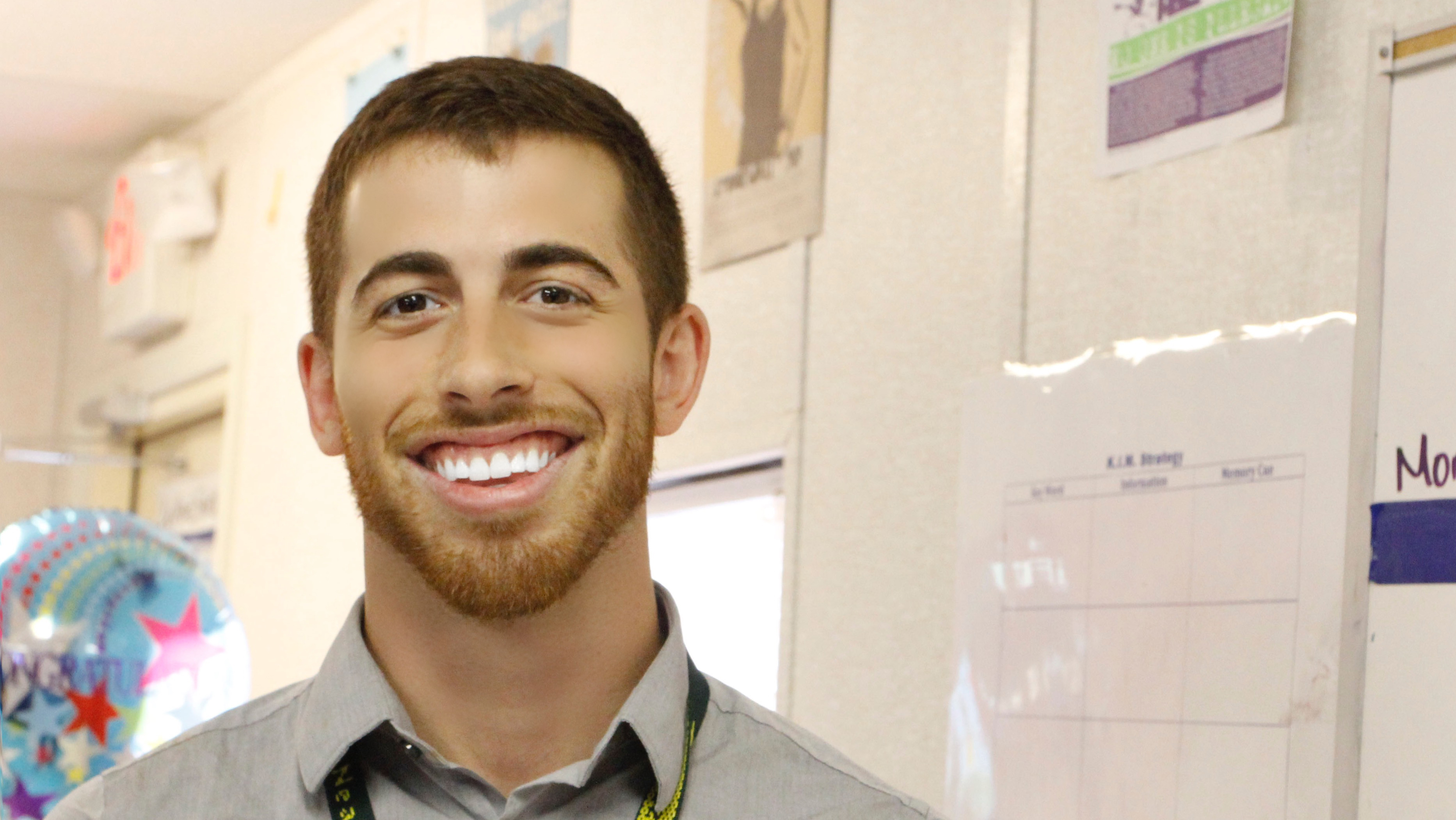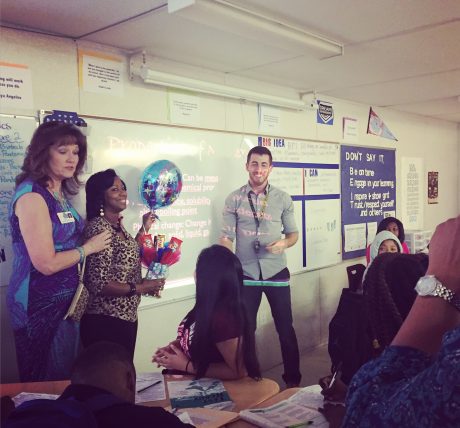Matthew Hickson ’18: Unleashing Powerful Voices

Matthew Hickson’s journey to unleash powerful voices began on a hot summer day when he was a teenager. Now, the Durham Principal Leadership Academy Resident and founder of Bull City Schools United is using his time, talents and privileges to create spaces for people to use their voice inside and outside of the classroom.
Hometown: Durham, North Carolina
Field of Study: Master in School Administration
Activities (Research or Extracurricular): Durham Principal’s Leadership Academy Resident at Hillside High School and Founder/Director of Bull City Schools United
How did the NC State College of Education impact you?
The Durham Principal’s Leadership Academy is a unique program combining a top-ranked principal preparation program with a residency in the Durham Public Schools, a diverse and dynamic district just west of NC State. In this program, I have learned the value of leadership. To lead and serve the teachers and students of our public schools is an honor.

Why did you choose your field of study?
I chose to be in education because I believe in community. As a high school student, I spent my senior summer walking across my city of Charlotte. I registered voters in neighborhoods across the socioeconomic and political spectrum. On a hot August day, I stopped at a house in a neighborhood stricken with deep poverty. An old man came to the door and asked me in. “You,” he told me, “are doing the good work. The work of unleashing powerful voices on our democracy.” That day was the start of my journey as an educator—a journey to unleash powerful voices.
If we are to fulfill the dream of a world where communities self-determine their futures, people recognize the inherent worth every soul, and citizens work together for a more perfect union, then we must provide an excellent public education system that makes our current students our future leaders. We must love, engage, and empower every student, every day.
The charge to love, engage, and empower is to center students and families in our work; it demands empathy and the seeking of justice. It implores us to recognize the latent strengths and potential of every child. This is our work. It is my mission to utilize the time, talents, and privileges I have to create spaces in which others can have their powerful voices heard. I am excited to continue that journey.
What do you hope to accomplish in your field after graduation?
Last week there was an installation at the high school I work at. It was a quilt, with each square representing a person who lost their life to gun violence in Durham over the past 25 years. The quilt was about six feet wide and stretched the length of the entire lobby. On an unassuming square just toward the end of the quilt was the name of one of my former students. As I sat and watched people walk by the quilt I was struck by its quiet power, and saddened by the visible display of so much collective pain. The reason I am in this work is to prepare a generation to answer the call from this quilt. To break the cycle of violence and promote a more peaceful and equitable society. Ultimately I hope my work can provide an opportunity to students like that former student so that they can be kept from being a name on this quilt and instead raised up for all of their gifts.
What’s your favorite memory from your time at the College of Education?
Visiting the Ron Clark Academy with my cohort of NC State MSA Candidates.
What advice do you have for others considering education?
Seek first to understand. This is perhaps the most important of Covey’s “Seven Habits” for success. In education, it is the heart of what we do. To compel our students to seek to understand others and understand their place in a complex world is the purpose of education. For us as educators, that means seeking to understand our students, their families, and their communities. Understanding means seeking to learn about student’s different identities and backgrounds and showing respect for them in the classroom. Understanding means creating a trauma-informed classroom and school. Understanding means seeking to change the policies and procedures that create inequities in our schools. Understanding means respecting students of different nations, and who speak different languages at home. As we seek to understand, we model the way for our students to understand each other and lead in creating a better future for all of us.
- Categories:


